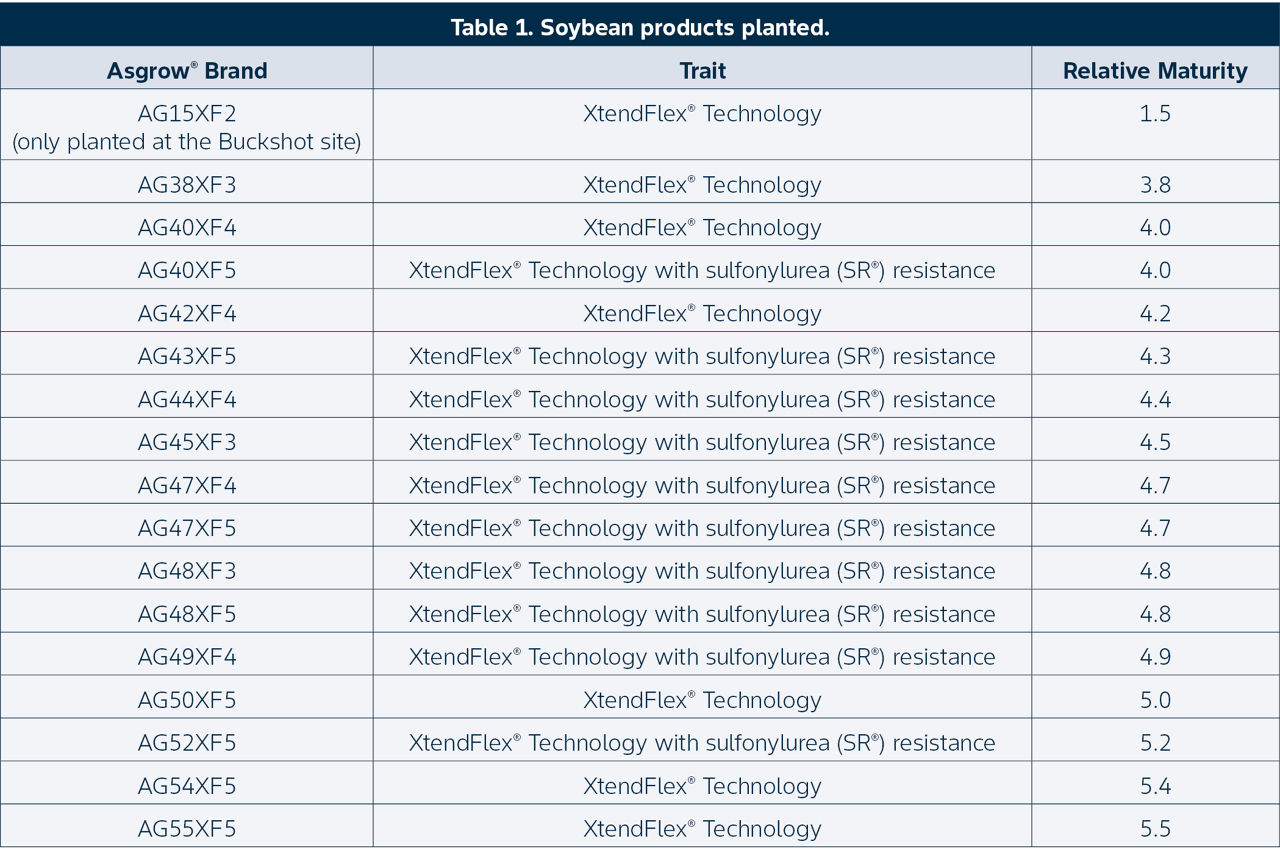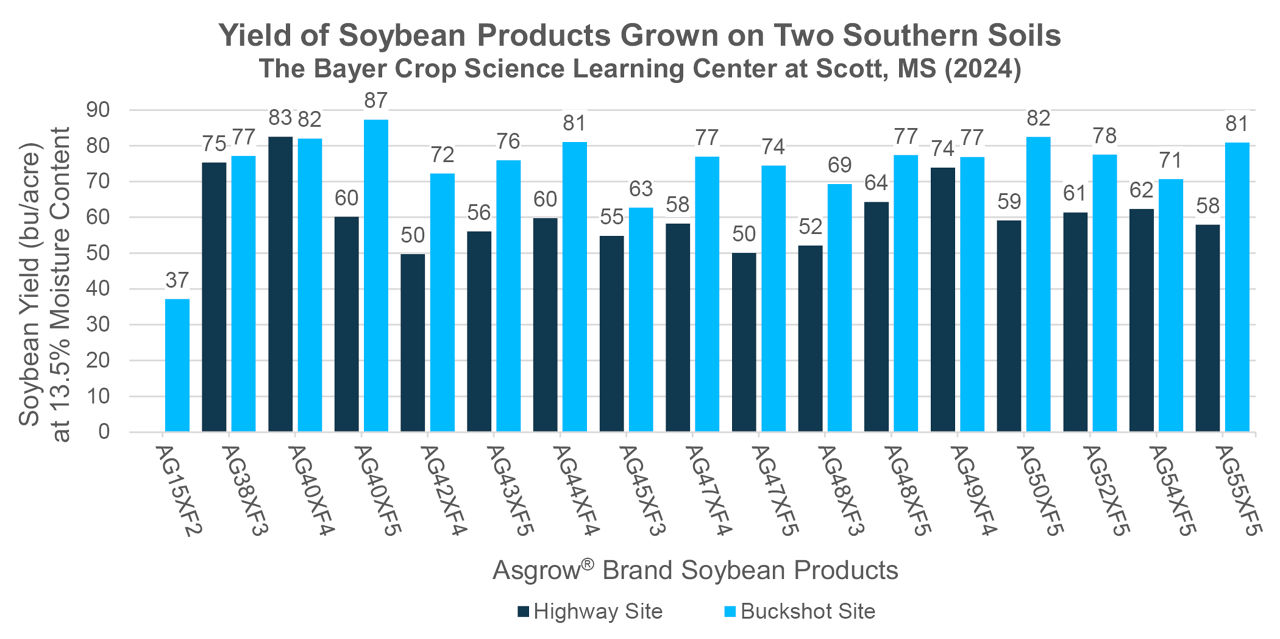Evaluation of Asgrow® Brand Soybean Products on Southern Soils
December 20, 2024
TRIAL OBJECTIVE
- Each year trials are conducted at the Bayer Learning Center in Scott, Mississippi to evaluate the adaptation of soybean products to two very different soil types. The Buckshot site has a heavy clay soil and the Highway site has a deep, sandy soil.
- Soybeans are grown in a wide variety of soil types, and this trial was conducted to measure the yield performance of 17 Asgrow® brand soybean products with various relative maturities grown on two different alluvial delta soil types.
RESEARCH SITE DETAILS

- Experimental design and data collection:
- Non-replicated strip plot: 8 rows per plot
- 38-inch rows on beds with two drills on top, 7.5 inches apart
- Plot Size: 0.25 to 0.30 acre/plot with rows between 400 and 500 feet long depending on the experiment
- Commercial machinery was used to harvest the plots
- All yield values were corrected to a 13.5% moisture content equivalent for data presentation.

UNDERSTANDING THE RESULTS

- Yield Performance
- Highway Site (lighter sandy soil)
- Yield values ranged from 50 to 83 bu/acre
- Average yield across all products (varieties) – 61 bu/acre
- Buckshot Site (heavy clay soil)
- Yield values ranged from 37 to 87 bu/acre
- Average yield across all products (varieties), excluding AG15XF2 – 77 bu/acre
- AG15XF2 is an early season maturity soybean product. It was analyzed at the Buckshot site as heavy clay soils are more typically soybean ground. Extra-early soybean maturities are being explored as an option for spreading workload. In this trial, growers can observe how these extra-early maturities may not be as well adapted to the southern growing season.
- Highway Site (lighter sandy soil)
KEY LEARNINGS
- Soybean yield potential varied across the two tested soil types. Plants generally produced higher yields when grown on the heavy clay soil (Buckshot site) compared the plants grown on the lighter sandy soils (Highway site). These data are consistent with results observed in previous years.
- Asgrow® brand appears to have a selection of well-adapted soybean products for both tested production environments. Some soybean products appear to be better adapted to one environment compared to the other.
- Please contact your local Asgrow® brand representative for more details on soybean products for your area.
- No dicamba may be used in-crop with seed with Roundup Ready® Xtend Technology, unless and until approved or specifically permitted, and no dicamba formulations are currently registered for such use in the 2025 season. Please follow www.roundupreadyxtend.com/pages/xtendimax-updates.aspx for status updates. Dicamba may harm crops that are not tolerant to dicamba.
1314_155281